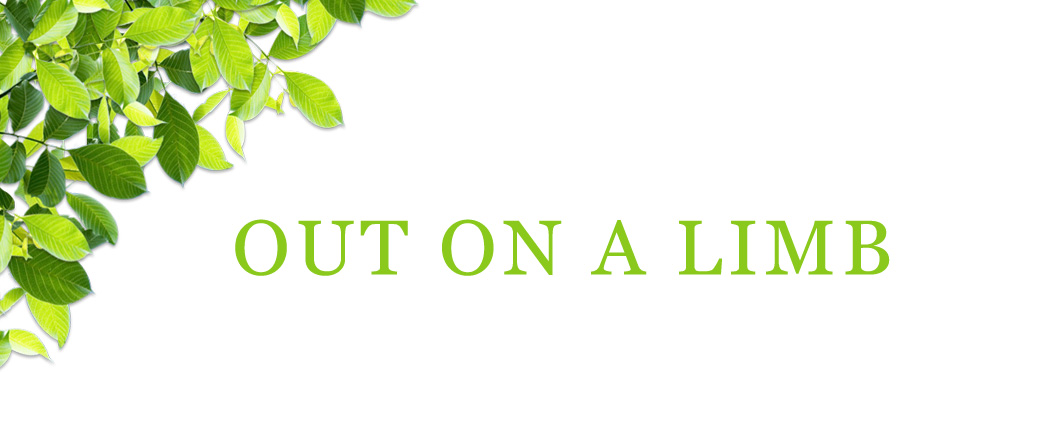Can You Hear Me Now?
There is a Dunkin’ outlet in my town where I sometimes go to get a cup of coffee and a doughnut. It’s an easy in and out and I enjoy the treats when I am opening my history center or running an early-morning chore.
But there is a problem with my cozy little ritual. At least 20 percent of the time I don’t get what I ordered. It is such a persistent problem I have taken to peeking into the bag before I drive away to see if I really have a vanilla-frosted doughnut and not some distant relative.
It’s a problem that seems endemic in the fast-food industry where, I have to presume, worker motivation and attention to detail is low. As a vegetarian, I have ordered meatless sandwiches only to find my Whopper contains “real” meat. I have ordered coffee with extra milk and been served a cup that was blacker than black. At times, I have had to remind the staff to completely fill my order.
Blah, blah, blah … a very minor first-world problem. Or is it? I believe the listening skills in our society are atrocious and getting worse. The recent presidential debate was the apex of non-communication—a flood of words that imparted nothing but demonstrated that active listening and consideration of what others are saying are going the way of the dodo.
My impression that listening is on the decline is borne out by studies conducted during recent decades. They show that immediately after listening to a 10-minute oral presentation, the average listener has heard, understood and retained 50 percent of what was said. Within 48 hours, that drops another 50 percent to a final level of 25 percent retention.
Wow! We walk away from even short oral presentations with only a quarter of the information accurately retained! That leaves tremendous room for misinterpretation. And that is in the ideal situation of passively listening. Throw in discourse between one or more persons vying for dominance and it is fair to suppose the information exchange is even lower.
Rather than listening, people are frequently engaged in deciding what they will say next. Their ears and minds are, effectively, closed. The late Wicke Chambers, a noted communications consultant, said in a 2013 Wall Street Journal article, that people find the art of listening “boring.” She asserted that talking is seen as active and dominant and listening as passive and deferential. “There’s the old joke, the opposite of talking isn’t listening, it’s waiting to talk," Ms. Chambers was quoted as saying. “That's what a lot of people do, they just wait to talk.”
Many do not bother to wait. Interrupting, it seems, is a national sport. Talk show participants talk over each other, politicians bicker, news anchors cut short the very answers they have solicited.
This problem is compounded by the cacophony of noise that surrounds us: from the chirping distraction of our phones announcing messages, to the drone of televisions in the background as we work, to the endless auditory and visual distractions—these all combine to fragment our attention.
Part of the problem may be found in our genes. According to Ralph G. Nichols, a retired professor of rhetoric at the University of Minnesota, in his book Are You Listening? some poor listening skills are biological. He found that people speak at the rate of about 125 words per minute but our mental capacity allows us to decode up to 400 words per minute (an impossible rate of speech for anyone other than an auctioneer). The difference between our normal speaking speed and thought speed requires only 25 percent of our mental capacity, leaving the other 75 percent of our brains free to wander, losing information with every tangent.
This poses a conundrum: Walter Cronkite, once considered to be the most trusted man in the United States, spoke in measured tones at a rate of 125 words per minute. Edward R. Murrow, another monumental figure from an earlier age of journalism, also spoke deliberately, choosing his words elegantly. But today, CBS’s Norah O’Donnell’s delivery has a rapid-fire, breathless urgency in an age when reporters speak up to 180 words per minute. Does her machine-gun delivery of the news require that we engage more of our brains to understand her or do we simply tune out faster out of mental fatigue?
In earlier societies, listening was necessary for survival and, in less-pressured cultures, people were content to listen, to absorb information that could prepare them to face the dangers of their day, teach them the skills necessary to thrive, even encourage them to embrace new ideas. Our society has fallen into discord, with an avalanche of words we barely hear and regard even less. The inability of workers to accurately hear a nine-word breakfast order does not portend well for an electorate faced with nation-changing decisions to make.

